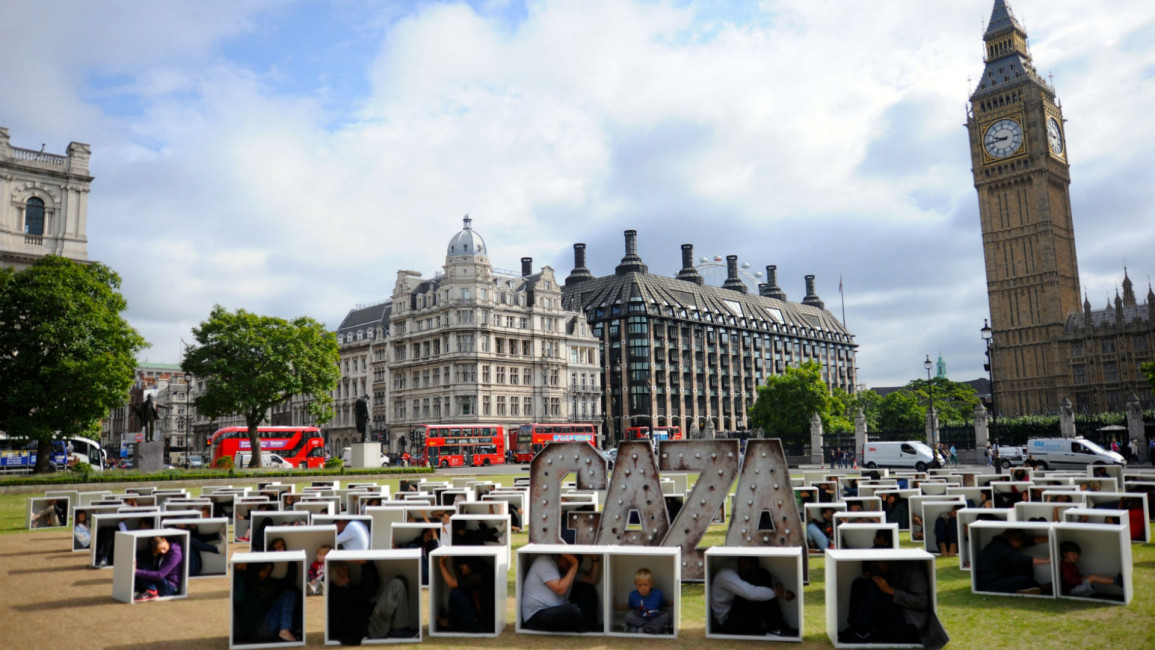
UK election: policy on the Middle East
In just over a week, the UK goes to the polls in a general election that decides who will lead the country for the next five years. So far, it has been a closely fought race.
Although an Ipsos MORI polled defence, foreign affairs and terrorism all ranking high as important issues for voters, they have not been central to the parties' campaigns.
Same policies
Douglas Alexander, Labour's shadow foreign secretary, told Chatham House last year that political parties share many of the same views on foreign policy.
So where does this leave the Middle East and North Africa region?
Some of the key issues affecting the region are related to foreign intervention, Syrian refugees, Palestine and Israel, and Saudi Arabia.
Labour supported the invasion of Iraq and military intervention in Libya.
In a recent interview in the Economist the former foreign secretary, William Hague, defended his party's decision to intervene in Libya.
He said that Conservatives, to some extent, accepted responsibility for what happened after Muammar Gaddafi's overthrow but the UK have worked hard to break the political deadlock in the country.
It is clear that none of the main political parties have learned lessons from the failed intervention or occupations of Afghanistan, Iraq and Libya.
Last year David Cameron pushed for airstrikes against the Syrian regime.
Although parliament voted against military action, the UK still seems to lack a clear approach to solve problems in the Middle East and North Africa.
Despite strong humanitarian support, the UK government has been heavily criticised for not resettling more of Syria's refugees. So far, the UK has only resettled 143 Syrian refugees.
The coalition government's approach to the humanitarian crisis in Syria has focused on the provision of aid rather than allowing in refugees.
The Labour Party has pressed the Tory-led government to accept 500 of the most vulnerable Syrians.
UKIP, the anti-EU party, said it would not allow any more Syrian refugees into the UK – but backtracked saying they would accept Christians.
The Green party insists that due to the UK's role in the Middle East, it should be obliged to do more to help Syrian refugees.
| We need to get the message across to the Israeli state that it needs to comply with international law and human rights. Natalie Bennett, Green Party leader |
The Palestine question
Out of the three main parties, the Conservatives are seen as the most pro-Israel. A recent poll by Newsweek showed that almost 70 percent of British Jews intend to vote for the party.
If Cameron's party were to remain in power, we can expect the same old pro-Israel policies.
Last year, Cameron abstained from a vote on whether to recognise a Palestinian state.
During the Israeli bombardment of Gaza last summer he was criticised for not condemning Israel aggression.
Labour leader Ed Miliband reportedly lost the support of Jewish donors after he criticised Israel's assault on Gaza.
Miliband also ordered Labour MPs to observe the party whip by voting to recognise a Palestinian state. He has called on the blockade on Gaza to be lifted and expressed his support for a two-state solution.
Alexander has also said that "statehood for the Palestinians is not a gift to be given but a right to be recognised".
Despite lucid support for the Palestinian cause, Miliband does not fully support the boycott of Israeli goods.
This is despite half of the UK public believing that Israel acted "disproportionately" during the 2014 bombing of Gaza.
The scale of the suffered marked a decisive shift in public opinion towards the Palestinians.
Labour still appear no closer to supporting the policies of Palestinian pressure group, Boycott, Divestment and Sanctions.
Natalie Bennett, the Green's leader, recently announced that she backed a cultural boycott of Israel. "We need to get the message across to the Israeli state that it needs to comply with international law and human rights," she said.
The UK-Saudi Arabian "secret" relationship has been attacked by some human rights groups.
Cameron made his position clear when he said that sometimes it was "necessary", for the purpose of national security, to support regimes we may not agree with.
Since Cameron became prime minister in 2010, export licenses to Saudi Arabia have reached $5.8 billion according to the Campaign Against Arms Trade (CAAT).
The Greens insist that the UK should not sell arms to regimes that commit flagrant abuses of human rights.
None of the main parties would be likely to drop their support for their allies in the region, regardless of what crimes they commit.
Opinions expressed in this article remain those of the author and do not necessarily reflect those of al-Araby al-Jadeed, its editorial board or staff.



